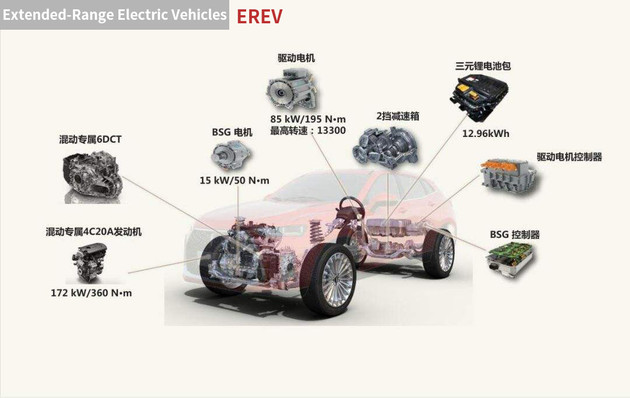摘要:本文探讨了电动汽车的演变,包括其带来的好处、所面临的挑战以及未来发展趋势。随着技术的进步和环保意识的提高,电动汽车逐渐成为交通领域的重要发展方向。电动汽车的普及仍面临成本、基础设施、续航里程等挑战。本文分析了这些挑战,并展望了电动汽车未来的发展方向,包括更高效的电池技术、智能化和可持续发展等方面。
Introduction
As the world shifts towards a more sustainable future, electric vehicles (EVs) are becoming increasingly popular. Offering a cleaner, cost-effective, and often more efficient alternative to traditional gasoline-powered cars, EVs are revolutionizing the transportation industry. In this article, we will explore the benefits of electric vehicles, the challenges they face, and what the future holds for this emerging technology.
What Are Electric Vehicles and Their Benefits?
Electric vehicles are powered by batteries that are charged through an electric socket, rather than relying on gasoline or diesel engines. These vehicles are not only used for personal transportation but also in buses, trucks, and even airplanes. The main benefits of EVs include:
1、Environmental Friendliness: EVs emit no direct emissions during operation, significantly reducing greenhouse gas emissions and air pollution.
2、Cost Efficiency: Electricity is generally cheaper than gasoline or diesel, leading to lower fuel costs for EV owners.
3、Reduced Maintenance: Electric vehicles have fewer moving parts, resulting in reduced maintenance costs.
4、Improved Performance: Electric motors offer instant torque, resulting in quick acceleration and a smooth driving experience.
Challenges Faced by Electric Vehicles
Despite their numerous benefits, electric vehicles face several challenges:
1、Initial Cost: EVs typically have a higher upfront cost than traditional gasoline cars.
2、Range Anxiety: The limited range of EVs before recharging can be a concern for some consumers.
3、Infrastructure: Public charging stations are still limited in some areas, making it difficult for EV owners to charge their vehicles away from home.
4、Battery Recycling and Disposal: As EVs become more prevalent, the need for sustainable battery recycling and disposal will become increasingly important.
User Frequently Asked Questions (FAQs)
Q: How far can an electric vehicle travel on a single charge?
A: The range of electric vehicles varies depending on the model and battery capacity. Most modern EVs can travel over 100 miles on a single charge.
Q: How long does it take to charge an electric vehicle?
A: Charging time depends on the vehicle and the charger used. Some EVs can be fully charged in less than an hour using fast charging stations, while a regular home charger may take several hours.
Q: Are electric vehicles more expensive than regular cars?
A: Yes, electric vehicles typically have a higher upfront cost than traditional gasoline cars. However, considering factors like fuel efficiency and maintenance costs, the overall cost of ownership can be lower over time.
Q: Where can I find public charging stations?
A: Public charging stations are becoming more common and can be found in many locations, including shopping centers, offices, and public parks. You can use online maps or smartphone apps to find the nearest charging stations.
The Future of Electric Vehicles
The future of electric vehicles is bright. With advances in battery technology and infrastructure development, we are likely to see further growth in the EV market. Governments worldwide are offering incentives to encourage the adoption of EVs, and many companies are investing in electric vehicle manufacturing and charging infrastructure. The future of transportation is electric, and we are just at the beginning of this exciting journey.
Conclusion
Electric vehicles offer a clean, cost-effective, and efficient alternative to traditional gasoline-powered cars. Despite some challenges, such as initial cost and range anxiety, the future of EVs is bright with advances in technology and infrastructure development. As we move towards a more sustainable future, electric vehicles will play a crucial role in reducing emissions and improving air quality.
Key Takeaways:
1、Electric vehicles offer environmental benefits, cost efficiency, and improved performance.
2、Challenges include initial cost, range anxiety, infrastructure, and battery recycling/disposal.
3、The future of electric vehicles is bright with advances in technology and infrastructure development.
4、Governments and companies are investing in electric vehicle manufacturing and charging infrastructure.




 浙ICP备14032885号-5
浙ICP备14032885号-5